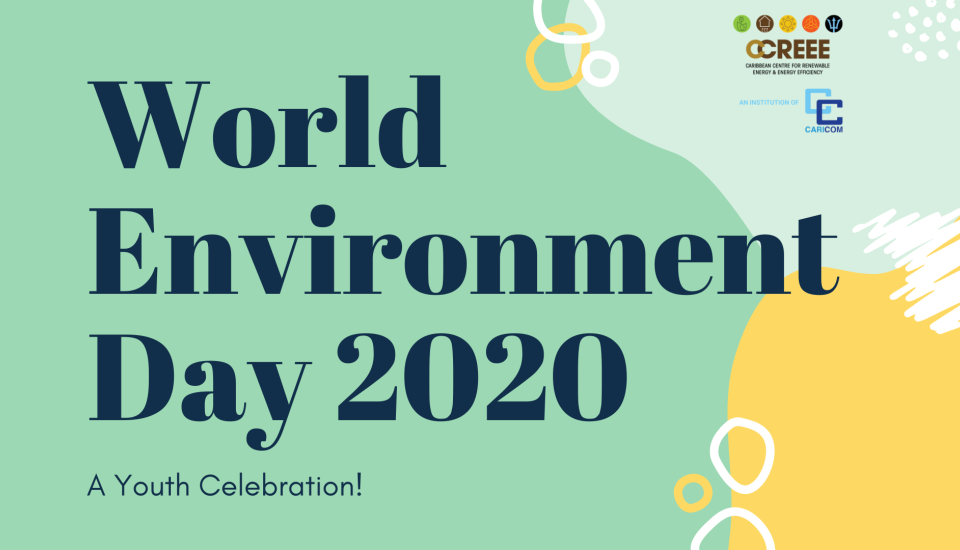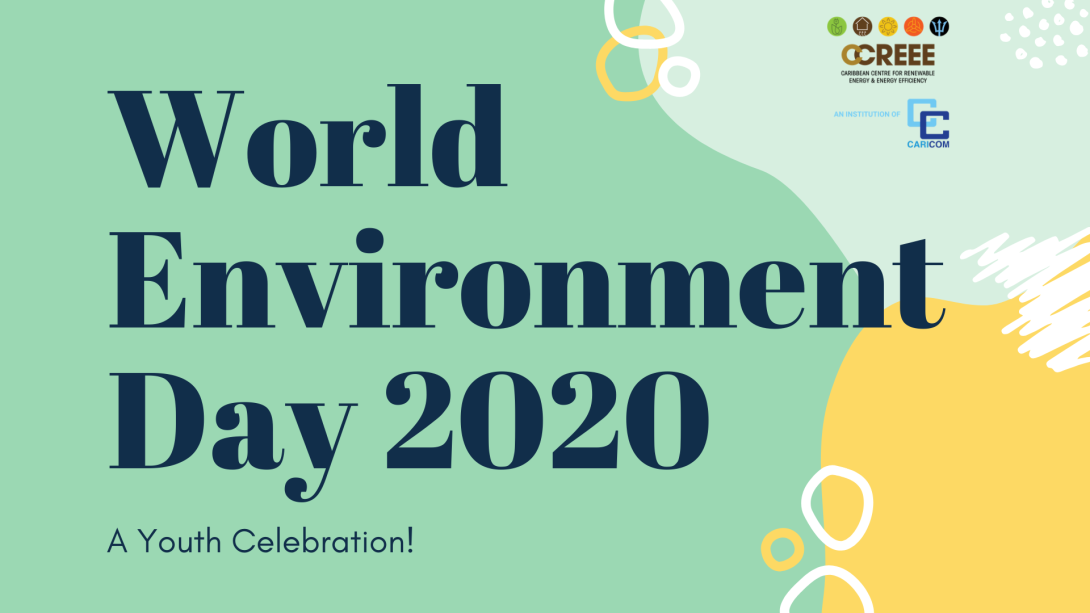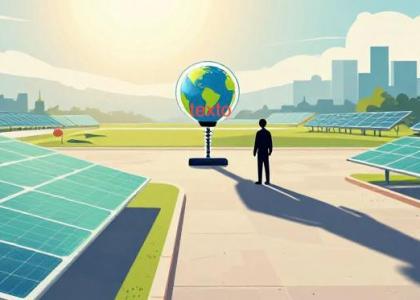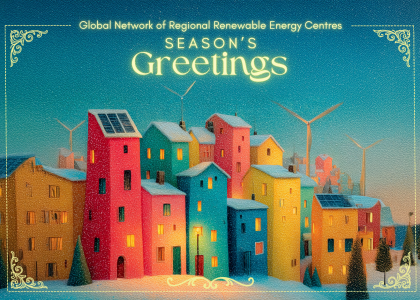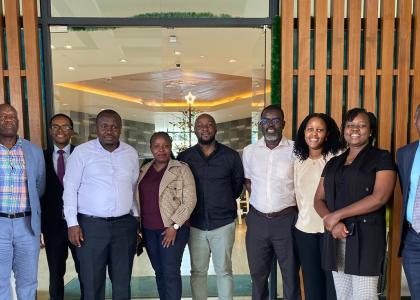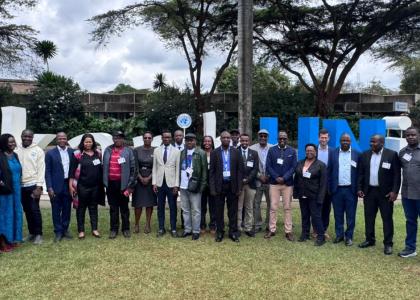By Jhannel Tomlinson, Youth Climate Change Activists Representative
The novel coronavirus has over the past few months, evolved into an unprecedented international crisis, with serious repercussions for the physical, mental and socio-economic wellbeing of many individuals. These impacts coupled with the challenges being seen in global markets, have been at the forefront of governmental action. As countries seek to rebuild by responding to these interlinked crises, however, it is critical that they not lose sight of a major challenge of our time: climate change and the need for cleaner and greener economies.
One indicator of the pandemic’s far-reaching impact has been its impact on carbon dioxide emissions. According to the National Geographic (2020), carbon emissions were down an estimated 18% percent in China and an estimated 9% in the European Union, due to the reduction in industrial and commercial activity, brought about by COVID-19. This revelation has seen leaders, especially those in Small Island Developing States, calling for a shift to more sustainable economies that work for both people and the planet, where we seek to ‘build back better’ in an attempt to create a healthy, resilient and decarbonized world. Clean energy is one solution to achieving this and is in line with climate targets that can help mitigate the impacts of climate change while helping to prepare for other crises similar to COVID-19. The advancement of renewable-based energy creates opportunities to meet international climate goals while enhancing local economic growth, creating millions of jobs, and engaging youth in the development of innovative technologies.
Today, we celebrate the World Environment Day, a movement accredited with debuting modern environmental action and in an effort to showcase those promoting clean energy in the region, we here highlight the work of the Caribbean Centre for Renewable Energy and Energy Efficiency (CCREEE) which has sought to advance work in in the area of renewable energy, re-affirming their commitment to sustainable development.
CCREEE's Role
Established as the implementation hub for sustainable energy activities and projects within the region, CCREEE aims to improve access to affordable and reliable energy services. The Centre has placed the promotion of renewable energy and energy efficiency investments, and industries in the Caribbean at the forefront of their mission, underscoring the increasing importance of sustainable energy in the face of growing concerns related to energy security and climate-change awareness.
With a mandate to provide action and service-oriented services to a broad range of public and private partners and clients, CCREEE assists the Energy Programme of the CARICOM Energy Unit and the CARICOM Member States in the technical implementation of sustainable energy commitments and also works closely with the ECOWAS Centre for Renewable Energy and Energy Efficiency (ECREEE) and the Pacific Centre for Renewable Energy and Energy Efficiency (PCREEE) on common SIDS sustainable energy issues and solutions. Most recently, CCREEE has, in collaboration with other partners, undertaken actions directed at reducing financial barriers for investments in renewable energy and energy efficiency projects and businesses across all scales in the CARICOM region. These have included partnerships with the Governments of Belize, the Cooperative Republic of Guyana and the Republic of Trinidad and Tobago to undertake the development of Integrated Resource and Resilience Plans (IRRPs). These plans are important in ensuring that countries are able to supply their future energy needs and will assist in developing reliable yet affordable sources of power, reducing negative environmental impacts and increasing resilience to environmental shocks. As highlighted by the Acting Head of the Renewable Energy Division in the Ministry of Energy and Energy Industries, Trinidad and Tobago, “the establishment and eventual implementation of the IRRP, will result in a country that is efficient and resilient to shocks such as climate disasters and demand shocks due to pandemics resulting in a cleaner and greener Trinidad and Tobago ”. These sentiments have been further echoed by CCREEE’s Executive Director, Dr Gary Jackson who shares that that despite the vulnerability of the region, and in particular our energy sector, the benefits of an IRRP are many, including investment opportunities and socio-economic success which will become critical as the Caribbean re-builds, post COVID-19.
In another effort, the Centre supported an initiative of the Barbados Water Authority, funded by the Green Climate Fund, which initiated the procurement of 6.5 megawatts of solar and microturbine capacity, through the Caribbean Community Climate Change Centre (CCCCC). This was being done to increase the resilience of water services in Barbados, with special consideration of the water supply to the main public hospital.
Their Youth Innovation Challenge, done in partnership with CARICOM, showcased the Centre’s engagement of young people in building knowledge and awareness of renewable energy and is tied to another project which involves the design and regional roll-out of Science, Technology, Engineering, the Arts and Mathematics (STEAM) Centres. These centres are intended to be operated and maintained by students of educational institutions in currently underserved and remote areas of the CARICOM region and the Innovation Competition will be held to determine the first pilot site within the CARICOM region. In light of COVID-19 and the many changes in the education system across the region, the Centre has re-visited the challenge to ensure students in all CARICOM Member States have equal opportunities to respond to the challenge.
In looking to the future and ensuring the sustainability of the sector, the Centre further seeks to establish a user-friendly investment portal for potential investors and financiers; organize annual investment and business forums to present the project pipeline to interested financiers and investors; support the development of innovative projects addressing the energy needs of industrial key sectors in the Caribbean and design and establish regional support schemes to support national institutions/banks to provide co-finance to small and medium scale projects including those in rural areas.
The Way Forward
The reduction in revenue and economic activity caused by the pandemic will create a reason for individuals and companies to reduce their operating costs. Governments should therefore seek to increase their climate ambitions and incentivise those who seek to implement clean energy technologies. The coronavirus crisis has caused significant damages within the region and instead of allowing it to pose a barrier to a renewable energy transition, an effort must be made to create and/or seize opportunities. The system must be ‘rebooted’ to avoid returning to the past and a systemic approach is needed.
CCREEE has showcased the importance of collaboration in executing reliable and effective renewable energy initiatives. They have also shown that they consider the youth as critical stakeholders in the journey towards sustainable and efficient energy systems. It is therefore important to use the CCREEE as success stories of how to effectively promote renewable energy, engaging varying stakeholders and promoting sustainable development, especially as we move towards the future, post COVID-19.

